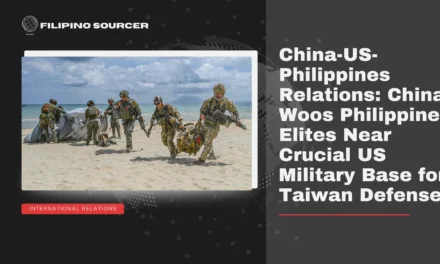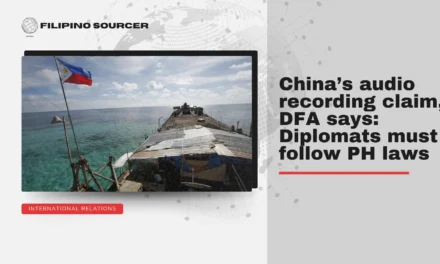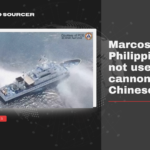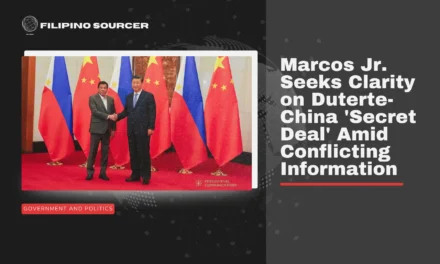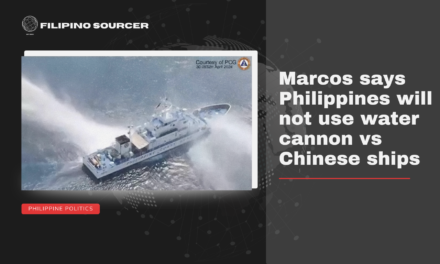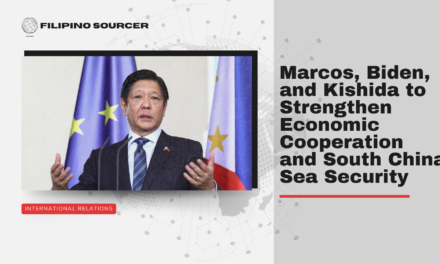
China Repeats Call for Philippines to Remove Grounded Warship

In the ever-evolving landscape of international relations, tensions and disputes often make headlines. A recent development has put the spotlight on the diplomatic interactions between China and the Philippines. On August 8, 2023, China reiterated its call for the Philippines to remove a grounded warship, sparking discussions and raising questions about the implications of this call on the two nations’ relationship and the broader regional dynamics.

1. Grounded Warship: A Maritime Controversy
The situation revolves around a grounded warship that has become a focal point of contention between China and the Philippines. The ship, positioned in disputed waters, has drawn attention due to its potential to escalate existing tensions. This development underscores the complex nature of maritime disputes and the strategic significance of the region.
2. China’s Assertive Stance
China’s repeated call for the Philippines to remove the grounded warship reflects its assertive foreign policy approach. The call is not only a demand for the removal of a physical obstacle but also a demonstration of China’s determination to protect what it perceives as its maritime interests. The assertiveness raises questions about the potential implications for neighboring countries and the overall stability of the region.
2.1 Diplomatic Nuances
The call also highlights the intricacies of diplomatic negotiations. The Philippines’ response to China’s demand requires a delicate balance between asserting its sovereignty and maintaining diplomatic relations. Navigating these waters requires skillful diplomacy and an understanding of the broader geopolitical context.
3. Regional Implications
The call for the removal of the grounded warship reverberates beyond bilateral relations. Neighboring countries and regional stakeholders are closely watching the developments, as they could have ripple effects on the balance of power in the Asia-Pacific region. The situation underscores the interconnectedness of global politics and the potential for localized disputes to have far-reaching consequences.
4. Geopolitical Chessboard: Superpower Dynamics
The China-Philippines dispute is a microcosm of the larger geopolitical chessboard involving superpowers. As China’s influence grows on the global stage, its interactions with other nations become symbolic of the shifting dynamics between established and rising powers. The grounded warship serves as a pawn in this intricate game of power politics.
5. Maritime Security and International Law
At its core, the call for the removal of the warship raises questions about the application of international law in maritime disputes. The United Nations Convention on the Law of the Sea (UNCLOS) provides a framework for resolving such conflicts, emphasizing peaceful resolution and cooperation. The situation prompts a closer examination of how international law can guide the resolution of complex maritime issues.
6. The Quest for Stability
Amidst the tensions and diplomatic maneuvers, the underlying quest for stability stands out. Both China and the Philippines, along with other regional actors, share an interest in maintaining a stable environment that fosters economic growth and development. The call for the removal of the grounded warship serves as a reminder of the need for dialogue, cooperation, and mutual understanding to achieve lasting stability in the region.
7. Looking Ahead: Pathways to Resolution
As the situation unfolds, multiple pathways to resolution come into focus. Diplomatic negotiations, multilateral dialogues, and third-party mediation all offer potential avenues for finding common ground. The key lies in open communication, a willingness to compromise, and a shared commitment to upholding peace and stability.
Conclusion
The call for the Philippines to remove the grounded warship is a reminder of the complex interplay of interests, power dynamics, and diplomatic intricacies that shape international relations. As the two nations navigate this challenge, the world watches closely, hoping for a peaceful and cooperative resolution that sets a positive precedent for resolving maritime disputes. In a rapidly changing world, the ability to find common ground and build bridges becomes more crucial than ever before.
FAQs: Navigating Diplomatic Waters
Q1: Why is the grounded warship a point of contention between China and the Philippines?
A: The grounded warship represents a territorial dispute in contested waters, highlighting differing claims to maritime regions and the strategic significance attached to them.
Q2: How does China’s assertive stance impact its regional neighbors?
A: China’s assertiveness can create apprehension among neighboring countries, potentially altering regional power dynamics and prompting nations to reassess their own diplomatic strategies.
Q3: What role does international law play in resolving maritime disputes?
A: International law, particularly UNCLOS, provides a framework for resolving maritime conflicts through peaceful means and upholding principles of cooperation and negotiation.
Q4: How can diplomatic negotiations contribute to resolving the situation?
A: Diplomatic negotiations offer a platform for open dialogue and compromise, fostering an environment where both parties can find common ground and work towards resolution.
Q5: What broader lessons can be learned from the China-Philippines situation?
A: The situation underscores the importance of effective diplomacy, the need for adherence to international law, and the significance of cooperation in maintaining regional stability and global peace.

